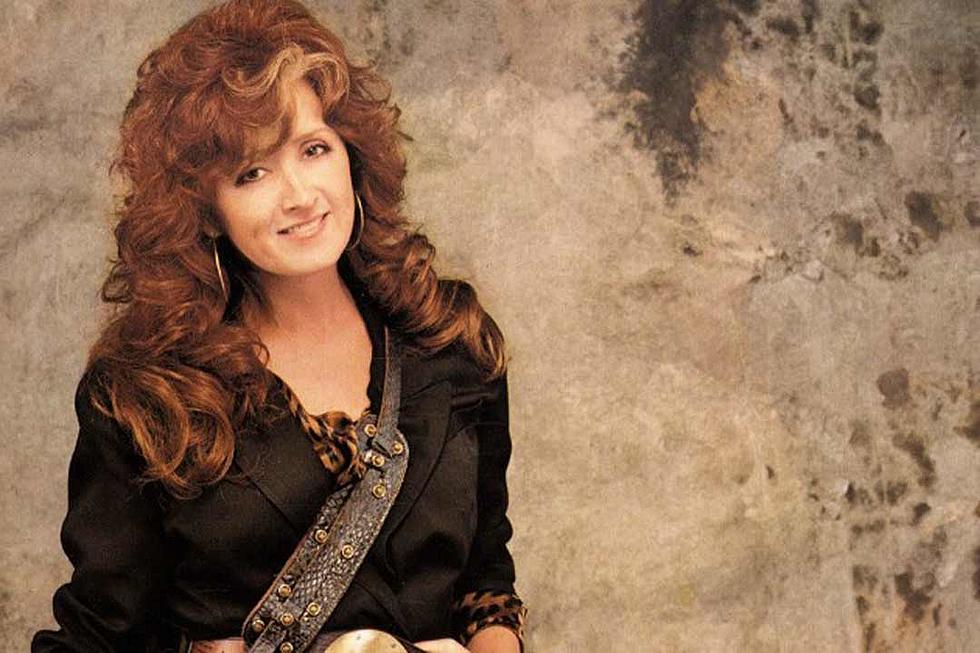
How Bonnie Raitt Finally Rebounded With ‘Nick of Time’
Once considered one of rock's most promising young artists, Bonnie Raitt saw her stock tumble during the '80s, as addiction and declining record sales left her without a label or a creative rudder for a sizable portion of the decade. But just when it seemed like she was washed up, a career-rejuvenating hit arrived in the Nick of Time.
"I was just mad that [Warner Bros.] weren't promoting my records," Raitt told Q magazine in 1991. "I would rather get off the label than keep putting out records they wouldn't promote. It was an unceremonious way they did it, though, because I had just finished another album and scheduled a tour, and the video was ready to be shot that week, and I was opening for Stevie Ray Vaughan the next two months, and they called up and said Van Morrison and myself and T Bone Burnett and Arlo Guthrie were getting the axe because some corporate upstairs guy decided they had to cut the fat somewhere. After 16 years, that wasn't the way to let someone go. But it was already an insult to not get played."
Forced to rely solely on touring to support herself, Raitt felt the pain of economic downsizing, but she also reaped the benefits of returning to her musical roots. "I fell back in love with what made me different in the first place," she explained. "I could play guitar and sing, and I didn't need a whole crunching rock band behind me to sell a song. Pat Benatar might need a rock band, but I can just sit with a blues guitar for an hour and a half and do folk songs and great contemporary ballads, and not many people can pull that off."
Raitt's 10th LP, Nick of Time, arrived on March 21, 1989, after a few relatively quiet years, during which she found sobriety and contributed to a number of other projects, including Roy Orbison's "Black and White Night" concert in 1987. The following year, she made what would turn out to be a fateful connection when she entered the studio to record "Baby Mine," originally from the Dumbo soundtrack, for a various-artists compilation of songs from Disney movies titled Stay Awake. Her producer for those sessions, Don Was, ended up taking the helm for the collection of new material that became Nick of Time.
Generally more of an interpreter than a songwriter, Raitt leaned heavily on the work of other artists, but the album's overall tone was set by the title track, an original that summed up the feelings of many listeners who were, like her, eyeing the onset of their 40s with a mixture of disappointment, uncertainty and hard-won wisdom. It sounds like a small thing today, but at the time, the frank sentiments expressed in the album's first three minutes and 52 seconds were a shocking breath of fresh air in a largely youth-obsessed medium.
Watch Bonnie Raitt's 'Thing Called Love' Video
"I think it's our job to write about what we're going through at the moment," Raitt asserted. "Being 41, I'm not going to write about the same things I wrote about at 20. I don't think artists should be farmed out to pasture just because they're in rock 'n' roll. ... Their experience deepens, and if you can continue to tap into that muse and have an audience that's your age, there's no reason why artists such as Sting and Don Henley and Jackson Browne, when they're 65, shouldn't be writing about what it's like to be 65. And anyway, universal themes cut across all ages – otherwise, I wouldn't be so touched by some of the older blues people."
None of Nick of Time's three singles gained much traction at Top 40 radio, but they proved popular in Adult Contemporary playlists, and "Thing Called Love" gave Raitt her biggest rock hit in years. Even without widespread radio support, the album turned into a sleeper hit with long legs, winning three Grammys (including Album of the Year) and topping the Billboard 200 in April 1990, more than a year after it arrived in stores.
Given the personal troubles and slim commercial prospects she'd faced just a few years before, Nick of Time made Raitt the feel-good musical story of the year, and kicked off a lengthy period of renewed success: Slipstream picked up a Best Americana Album Grammy in 2013. Years later, she couldn't overestimate the impact of Nick of Time: "To this day, it was the most fortuitous and transformational event of my life," Raitt told CBS News. "It changed everything."
Part of that was nothing more than the type of good fortune Raitt slyly alluded to with the title of her next release, 1991's Luck of the Draw. But a lot of it had to do with the fact that the songs were rooted in something real, even if they hadn't come from Raitt's pen. The friend she described in the opening verse of "Nick of Time" – who "cries at night and she calls me on the phone" and "sees babies everywhere, and wants one of her own" – was based on an actual person.
"I'm happy to report that baby did get born, and I went to his Bar Mitzvah last year," Raitt told CBS in 2006. "They were going to name him Nick after 'Nick of Time.' Didn't do it."
Albums That Saved a Band's Career
More From Ultimate Classic Rock









